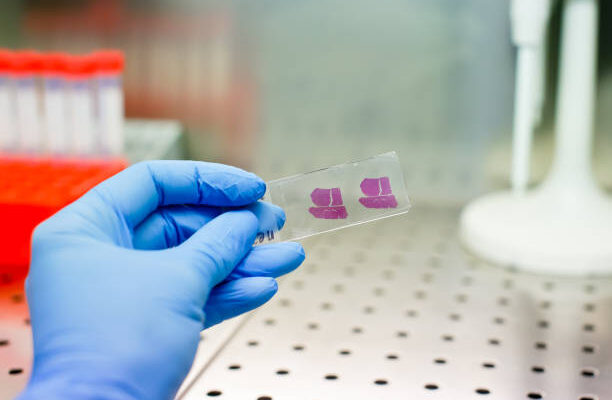The Hepatocellular Carcinoma Drugs Global Market Report 2024 by The Business Research Company provides market overview across 60+ geographies in the seven regions – Asia-Pacific, Western Europe, Eastern Europe, North America, South America, the Middle East, and Africa, encompassing 27 major global industries. The report presents a comprehensive analysis over a ten-year historic period (2010-2021) and extends its insights into a ten-year forecast period (2023-2033).
Learn More On The Hepatocellular Carcinoma Drugs Market:
https://www.thebusinessresearchcompany.com/report/hepatocellular-carcinoma-drugs-global-market-report
According to The Business Research Company’s Hepatocellular Carcinoma Drugs Global Market Report 2024, The hepatocellular carcinoma drugs market size has grown strongly in recent years. It will grow from $1.07 billion in 2023 to $1.17 billion in 2024 at a compound annual growth rate (CAGR) of 9.5%. The growth in the historic period can be attributed to increased disease incidence, advancements in cancer research, global healthcare infrastructure improvement, regulatory approvals, awareness and early diagnosis initiatives.
The hepatocellular carcinoma drugs market size is expected to see strong growth in the next few years. It will grow to $1.62 billion in 2028 at a compound annual growth rate (CAGR) of 8.5%. The growth in the forecast period can be attributed to targeted therapies advancements, increasing geriatric population, healthcare personalization trends, global expansion of treatment access. Major trends in the forecast period include access to innovative therapies, patient-centric care, regulatory advancements, drug resistance mitigation strategies, collaborative research initiatives.
The rise in the occurrence of hepatocellular carcinoma is expected to propel the growth of the hepatocellular carcinoma drug market over the coming years. Hepatocellular carcinoma (HCC) is a primary malignant disease of the liver and the most common form of liver cancer. Hepatocellular carcinoma starts with the main type of liver cells called hepatocyte cells. Most cases of HCC result from infection with hepatitis B or C, or cirrhosis. As the occurrence of hepatocellular carcinoma continuing to rise, it leads to an increased demand for effective hepatocellular carcinoma drugs to treat the disease. For instance, in 2023, according to the report published by the American Cancer Society, Inc, a US-based nationwide voluntary health organization dedicated to eliminating cancer, estimated new cases of liver cancer in females diagnosed in the United States increased from 12,660 in 2022 to 13,230 in 2023. Therefore, the rise in the occurrence of hepatocellular carcinoma is driving the growth of the hepatocellular carcinoma drug market.
Get A Free Sample Of The Report (Includes Graphs And Tables):
https://www.thebusinessresearchcompany.com/sample.aspx?id=10809&type=smp
The hepatocellular carcinoma drugs market covered in this report is segmented –
1) By Type: Brachytherapy, Chemotherapy
2) By Drug Class: PD-1/PD-L1 Inhibitors, Tyrosine Kinase Inhibitors
3) By End User: Hospitals, Clinics, Cancer Rehabilitation Centers, Ambulatory Surgical Centers
Major companies operating in the hepatocellular carcinoma drugs market are developing laboratory-produced molecule such as monoclonal antibodies (mAb) to meet larger customer bases, more sales, and increase revenue. A monoclonal antibody (mAb) is a laboratory-produced molecule that is engineered to mimic the immune system’s ability to fight off harmful pathogens such as bacteria or viruses. For instance, in October 2022, AstraZeneca Plc, a UK-based pharmaceutical and biotechnology company, announced the US Food and Drug Administration (FDA) approval for Imjudo (tremelimumab) in combination with Imfinzi (durvalumab) Indicated for adult patients with hepatocellular carcinoma (HCC). Imfinzi (durvalumab) is a distinctive human monoclonal antibody that effectively binds to the PD-L1 protein. By doing so, it hinders the interaction between PD-L1 and the PD-1 and CD80 proteins. This action disrupts the tumor’s evasion of the immune system, releasing the inhibition of immune responses. As for Imjudo (tremelimumab), it stands out as a human monoclonal antibody designed to specifically target the activity of cytotoxic T-lymphocyte-associated protein 4 (CTLA-4). Imjudo works by blocking CTLA-4 activity, thereby promoting T-cell activation, priming the immune response against cancer, and fostering the death of cancer cells.
The hepatocellular carcinoma drugs market report table of contents includes:
1. Executive Summary
2. Hepatocellular Carcinoma Drugs Market Characteristics
3. Hepatocellular Carcinoma Drugs Market Trends And Strategies
4. Hepatocellular Carcinoma Drugs Market – Macro Economic Scenario
5. Global Hepatocellular Carcinoma Drugs Market Size and Growth
……………….
31. Global Hepatocellular Carcinoma Drugs Market Competitive Benchmarking
32. Global Hepatocellular Carcinoma Drugs Market Competitive Dashboard
33. Key Mergers And Acquisitions In The Hepatocellular Carcinoma Drugs Market
34. Hepatocellular Carcinoma Drugs Market Future Outlook and Potential Analysis
35. Appendix
Read Related Topics:
https://topprnews.com/benzoic-acid-global-market-2024-by-trends-key-drivers-top-manufacturers-opportunities-forecast-to-2033-emerald-kalama-llc-ig-petrochemicals-ltd-merck-kgaa/
Contact Us:
The Business Research Company
Europe: +44 207 1930 708
Asia: +91 88972 63534
Americas: +1 315 623 0293
Email: info@tbrc.info
Follow Us On:
LinkedIn: https://in.linkedin.com/company/the-business-research-company
Twitter: https://twitter.com/tbrc_info
Facebook: https://www.facebook.com/TheBusinessResearchCompany
YouTube: https://www.youtube.com/channel/UC24_fI0rV8cR5DxlCpgmyFQ
Blog: https://blog.tbrc.info/
Healthcare Blog: https://healthcareresearchreports.com/
Global Market Model: https://www.thebusinessresearchcompany.com/global-market-model




